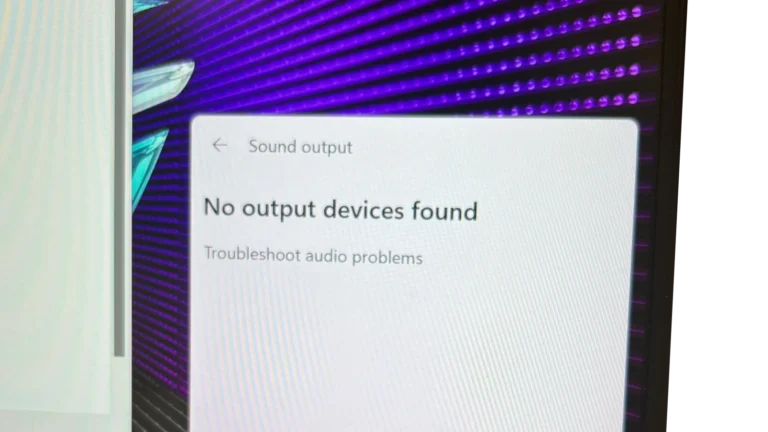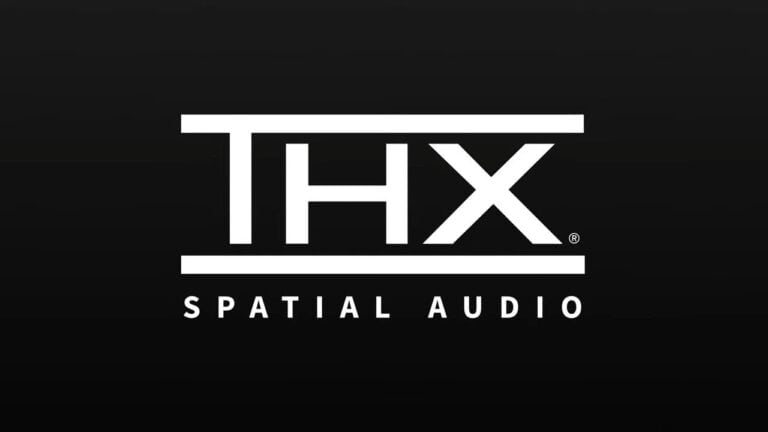Wireless audio technology has been transformed by the advent of Qualcomm’s aptX Adaptive codec, marking a significant shift in the way we experience sound. Originally released in 2018, this codec dynamically adjusts to provide high-quality audio and low latency, aiming to address some of the most challenging aspects of Bluetooth audio transmission. By optimizing for both the quality of sound and the demands of a robust wireless connection, aptX Adaptive ensures that listeners receive an audio experience that rivals wired systems without the hassle of cables.
At the heart of aptX Adaptive’s capabilities is its scalability, which allows for seamless adjustments depending on external factors such as RF interference and the complexity of the audio signal. This flexibility is a key factor in delivering consistent, high fidelity audio across a range of devices, from smartphones and tablets to speakers and earbuds. Qualcomm’s technology has expanded compatibility, making aptX Adaptive a widespread standard for users and manufacturers seeking to enhance the wireless audio space.
Understanding aptX Adaptive Wireless Audio Technology
Bluetooth audio has come a long way — from laggy, compressed sound to near-CD-quality streaming.
aptX Adaptive, developed by Qualcomm, is one of the most advanced Bluetooth audio codecs available today. It intelligently adjusts audio quality and latency in real time, delivering a seamless experience whether you’re listening to music, gaming, or watching movies.
🔍 What Is aptX Adaptive?
aptX Adaptive is a dynamic Bluetooth audio codec that automatically adjusts the audio bitrate between 276 kbps and 420 kbps to balance sound quality, connection stability, and latency.
It was introduced by Qualcomm in 2018 as a successor to aptX HD and aptX Low Latency, combining the strengths of both into one flexible codec.
In simple terms:
aptX Adaptive “adapts” to your environment and what you’re doing — optimizing for the best possible sound and sync.
⚙️ How aptX Adaptive Works
Unlike fixed-rate codecs (like SBC or AAC), aptX Adaptive uses variable bitrate encoding and intelligent scaling.
Here’s what that means in practice:
- 🎵 When streaming music → higher bitrate for better sound quality (up to 24-bit/48kHz).
- 🎮 When gaming or watching videos → lower bitrate and latency for perfect lip-sync.
- 📶 When signal strength drops → automatically lowers bitrate to prevent dropouts.
This adaptability happens automatically and seamlessly, without user input.
🧠 Key Features and Advantages
| Feature | Description |
|---|---|
| Dynamic Bitrate | Adjusts between 276–420 kbps to optimize quality and stability. |
| Low Latency | Typically around 80 ms, minimizing delay for gaming and video. |
| High-Resolution Audio | Supports 24-bit / 48 kHz playback for rich, detailed sound. |
| Error Resilience | More resistant to interference and Bluetooth congestion. |
| Backward Compatibility | Works with older aptX and aptX HD devices. |
| Automatic Mode Switching | Detects whether you’re gaming, streaming, or listening to music. |
🎮 Latency and Gaming Performance
One of the biggest benefits of aptX Adaptive is its low-latency performance.
While not quite as fast as the dedicated aptX Low Latency codec (≈38 ms), Adaptive maintains a strong balance — typically around 80 ms — which is excellent for mobile gaming and video streaming (TechRadar).
🎶 Audio Quality and Resolution
aptX Adaptive supports 24-bit audio at 48 kHz sampling rates, providing high-resolution playback suitable for modern streaming services like Tidal, Apple Music Lossless, and Amazon Music HD.
While not truly “lossless,” it offers near-lossless quality that most listeners find indistinguishable from wired audio — especially in quiet environments.
🔋 Efficiency and Battery Life
Because aptX Adaptive dynamically adjusts bitrate, it’s more power-efficient than older codecs.
When network conditions are ideal, it can run at lower bitrates without noticeable quality loss, helping extend battery life on both headphones and smartphones.
📡 Compatibility and Requirements
To use aptX Adaptive, both your source device and headphones must support it.
✅ Common Devices That Support aptX Adaptive:
- Many Android phones with Qualcomm Snapdragon 855 or newer chips.
- Headphones from brands like Sony, Sennheiser, Audio-Technica, Bowers & Wilkins, and Edifier.
- Windows 11 PCs with Qualcomm Bluetooth chipsets.
⚠️ Note: iPhones do not support aptX Adaptive — Apple devices use AAC instead.
You can check your device’s Bluetooth codec under Developer Options → Bluetooth Audio Codec on Android.
🔊 aptX Adaptive vs Other Codecs
| Codec | Max Bitrate | Latency | Audio Quality | Adaptive? | Supported By |
|---|---|---|---|---|---|
| SBC | 328 kbps | ~200 ms | Basic | ❌ | All Bluetooth devices |
| AAC | 256 kbps | ~150 ms | Good | ❌ | Apple devices |
| aptX | 352 kbps | ~120 ms | Good | ❌ | Android/Windows |
| aptX HD | 576 kbps | ~150 ms | Very good | ❌ | Android |
| aptX Adaptive | 276–420 kbps | ~80 ms | Excellent | ✅ | Android/Windows |
| LDAC | 330–990 kbps | ~150 ms | Excellent (Hi-Res) | ✅ | Android (Sony) |
Verdict:
aptX Adaptive offers the best balance of quality, latency, and stability, making it ideal for all-around use — especially on Android.
🔮 The Future: aptX Lossless
In 2021, Qualcomm announced aptX Lossless, an extension of aptX Adaptive that supports bit-perfect, lossless 16-bit/44.1kHz audio over Bluetooth.
It’s built on the same adaptive framework, meaning devices that support aptX Adaptive can often be upgraded to aptX Lossless via firmware.
Learn more at Qualcomm aptX Adaptive.
✅ Summary: Why aptX Adaptive Matters
| Benefit | What It Means for You |
|---|---|
| Smart Bitrate Scaling | Consistent playback even in noisy wireless environments |
| Low Latency | Smooth gaming and video experience |
| High-Res Support | 24-bit audio for richer detail |
| Power Efficiency | Longer battery life |
| Universal Use | Great for music, movies, and games |
💡 In Short:
aptX Adaptive intelligently balances sound quality, latency, and reliability, bridging the gap between wired and wireless listening.
If you use Android or Windows devices, it’s one of the best Bluetooth audio codecs available today.
Key Takeaways
- Qualcomm’s aptX Adaptive codec revolutionizes wireless audio with superior quality and low latency.
- The codec’s scalability offers robust performance across various devices and environments.
- aptX Adaptive represents a significant advancement in achieving high fidelity sound without wires.
Technical Insights of aptX Adaptive
Qualcomm’s aptX Adaptive stands at the forefront of Bluetooth audio codec innovation, offering seamless wireless sound with the flexibility to cope with varying environments and demands.
Evolution of Bluetooth Audio Codecs
Bluetooth audio has progressed from the basic SBC (Subband Coding) to more advanced codecs like AAC, aptX, and LDAC. aptX Adaptive represents the next step, designed to provide high-quality audio dynamically over Bluetooth connections.
Key Features and Sound Enhancement
aptX Adaptive is engineered for optimal audio performance, supporting 24-bit audio and a variable bitrate for CD-quality sound. Its adaptability ensures a consistent listening experience even when wireless conditions fluctuate.
Compatibility and Connectivity
This codec is backward compatible with aptX and aptX HD, assuring a wide range of device interoperability. Its presence is growing among Android phones, offering superior wireless audio on compatible devices.
Latency Improvements for Real-Time Audio
Reduced latency is a hallmark of aptX Adaptive. Its low-latency mode ensures audio keeps in sync with video, crucial for a glitch-free viewing or gaming experience.
How Bandwidth and Compression Affect Audio
aptX Adaptive adjusts to available bandwidth, striking a balance between audio quality and connection stability. It employs efficient compression to maintain performance without sacrificing quality.
Ensuring Quality Across Devices
The adaptive nature of this codec ensures high-quality audio across various products, from headphones and soundbars to smartphones and earbuds, without manual tuning.
Adapting to User Needs: From Music to Calls
Whether it’s for music, video, or voice calls, aptX Adaptive seamlessly transitions between bitrates and formats to provide the most suitable audio profile for the user’s activity.
Support and Integration
Qualcomm’s codec is integrated into their Snapdragon Sound ecosystem and is increasingly supported by audio device manufacturers for its premium and scalable audio capabilities.
aptX Adaptive in Gaming and Mobile Devices
With Snapdragon-powered devices, aptX Adaptive brings low latency and enhanced audio quality to mobile gaming, providing an edge with real-time sound that matches the gamers’ actions.
Future Outlook and Impact on Wireless Audio
Going forward, aptX Adaptive is set to revolutionize wireless audio with its versatility and superior performance, setting a new standard for Bluetooth listening experiences.
aptX Adaptive vs aptX HD vs aptX Lossless: Detailed Comparison
| Feature | aptX HD | aptX Adaptive | aptX Lossless |
|---|---|---|---|
| Launch Year | 2016 | 2018 | 2021 |
| Bitrate | Fixed at 576 kbps | Variable 276–420 kbps | Variable ~140 kbps to 1 Mbps |
| Audio Resolution | 24-bit / 48 kHz | 24-bit / 48 kHz | 16-bit / 44.1 kHz (CD quality, lossless) |
| Compression Type | Lossy | Lossy (adaptive) | Lossless (bit-perfect) |
| Latency | ~150 ms | ~80 ms (adaptive) | ~80 ms (same adaptive engine) |
| Error Resilience | Basic | High (auto bitrate adjustment) | High (auto bitrate + lossless fallback) |
| Adaptive Bitrate | ❌ No | ✅ Yes | ✅ Yes |
| Use Case Optimization | Music listening | Music, gaming, video | Audiophile-grade music streaming |
| Backward Compatibility | ✅ With aptX | ✅ With aptX & aptX HD | ✅ With aptX Adaptive |
| Power Efficiency | Moderate | High (dynamic bitrate saves power) | Moderate–High |
| Supported Devices | Android, Windows | Android, Windows | Select Snapdragon Sound devices |
| Typical Latency Range | 120–150 ms | 80–100 ms | 80–100 ms |
| Audio Quality (Subjective) | Excellent | Excellent–Adaptive | True CD-quality (lossless) |
🧠 What These Differences Mean in Practice
🎵 aptX HD
- Focused on high-resolution audio at a fixed bitrate (576 kbps).
- Great for music lovers, but not ideal for gaming or unstable connections.
- Doesn’t adapt to signal strength — may stutter in crowded wireless environments.
⚙️ aptX Adaptive
- The most versatile codec in the lineup.
- Dynamically adjusts bitrate and latency depending on what you’re doing.
- Ideal for everyday use — from streaming music to gaming to watching videos.
- Offers near-lossless quality with much better connection stability.
💽 aptX Lossless
- The newest and most advanced version, built on the aptX Adaptive framework.
- Supports bit-perfect, lossless 16-bit/44.1kHz audio (CD quality).
- Automatically switches between lossy and lossless modes depending on bandwidth.
- Requires Snapdragon Sound-certified hardware (e.g., Snapdragon 8 Gen 1+ phones and compatible earbuds).
📡 Compatibility Overview
| Device Type | aptX HD | aptX Adaptive | aptX Lossless |
|---|---|---|---|
| Android Phones (Snapdragon 855+) | ✅ | ✅ | ⚠️ Limited (Snapdragon Sound only) |
| Windows PCs (Qualcomm chipsets) | ✅ | ✅ | ⚠️ Rare |
| iPhones / iPads | ❌ (Apple uses AAC) | ❌ | ❌ |
| Wireless Earbuds / Headphones | ✅ (many models) | ✅ (increasing support) | ⚠️ Only high-end 2023+ models |
| Bluetooth Transmitters (USB dongles, DACs) | ✅ | ✅ | ⚠️ Few support yet |
🔋 Battery and Performance Notes
- aptX HD: High, fixed bitrate → slightly higher power draw.
- aptX Adaptive: Adjusts bitrate automatically → best battery efficiency.
- aptX Lossless: Uses more power when streaming at full lossless bitrate, but can scale down dynamically.
🎯 Which One Should You Choose?
| Your Priority | Best Codec |
|---|---|
| Best possible sound quality (CD-level) | aptX Lossless |
| Balanced quality, latency, and battery | aptX Adaptive |
| High-res music on older devices | aptX HD |
| Apple ecosystem | AAC (since aptX isn’t supported) |
✅ Summary
- aptX HD: High-quality audio, but fixed bitrate and higher latency.
- aptX Adaptive: Smart, flexible, and ideal for most users — balances sound, latency, and stability.
- aptX Lossless: The future of Bluetooth audio — delivers true CD-quality sound when conditions allow.
💡 In Short:
aptX Adaptive is the “sweet spot” for most users today — combining the best of HD and Low Latency codecs — while aptX Lossless represents the next step toward truly lossless wireless audio.





